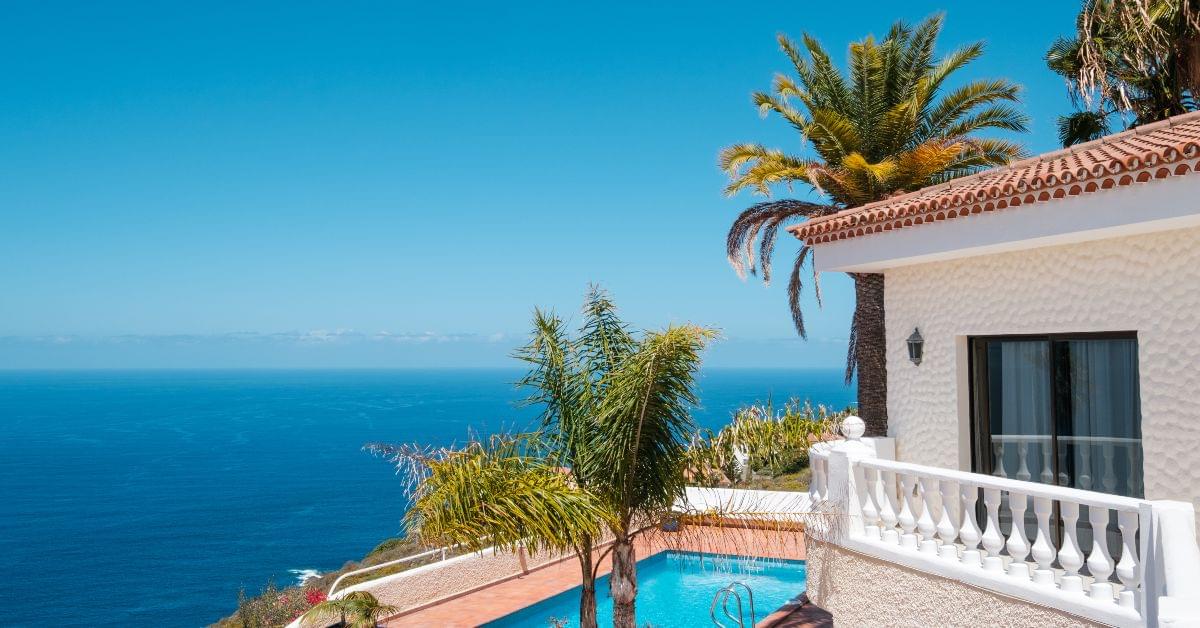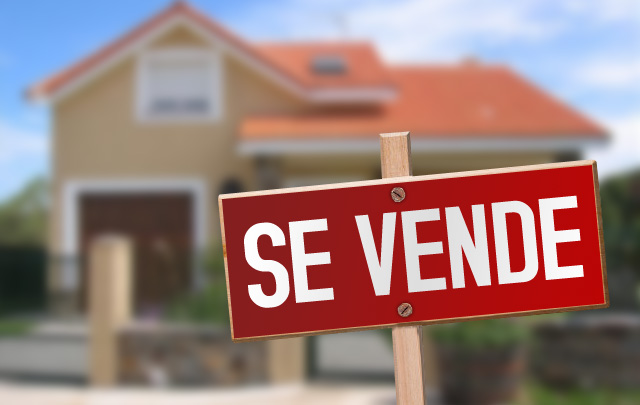Acquiring a Second Home in Spain
Friday, April 19, 2024
Acquiring a second home in the sun-kissed realms of Spain is a venture many dream of. A haven away from the hustle and bustle, or perhaps a prudent investment – the reasons vary but the charm remains. The Spanish property market, with its vast array of second-home buyers, both local and international, entices with its promise of a picturesque locale and unparalleled quality of life. But what exactly does it entail financially to secure a second dwelling in this vibrant nation?

Embarking on the quest to buy a second home often foments questions about the fiscal implications – from taxes to deductions and the investment's worth. Let's simplify the intricate web of costs associated when you decide to invest in your Spanish escapade.
The Taxing Affair of Purchasing a Second Home
Property Transfer Tax and VAT
The Spanish tax system distinguishes between second-hand properties and new builds when it comes to taxes. For second-hand homes, you’re required to pay the Property Transfer Tax (ITP), which is between 6% to 10% based on the autonomous community's legislation. On the other hand, new properties incur Value Added Tax (VAT), set at 10%, along with 1% to 1.5% for the Documented Legal Acts Tax (AJD). These taxes are non-negotiable and a significant portion of your budget should be allocated for them.
Additional Expenses
Beyond taxes, the path to homeownership is paved with additional costs. Notary fees, registration fees for making it all official, management fees to handle the processes, and potential bank commissions all add weight to your financial outlay. Each has its own scale but typically, they all contribute to adding around 1% to 2% cost on top of the property price.
The Recurring Costs of Second Homeownership
Once you’ve leapt over the initial financial hurdle and possess the keys to your new abode, ongoing costs become a part of your annual budgeting.
Community Fees
Should your residence boast communal luxuries, such as a shared pool or gardens, this comes at a price. Community fees maintain these shared perks and their costs hinge on the services provided.
Real Estate Tax (IBI)
The Real Estate Tax (IBI) is an annual fee that differs across districts. It's essential to note that as a second home, the tax may surpass the rate of primary residences as some local councils extend discounts for the latter.
Upkeep: A Necessity
The practicalities of maintaining a property can't be ignored. Repair funds, general maintenance, utilities, and insurance to shield against unforeseen events are continuous financial commitments you must be prepared for.

The Second Home and Tax Authorities: An Enduring Relationship
Owning a second home ties you to tax obligations each year – the evident one being the IBI. But if you choose to transform this residence into a profitable rental, expect to declare this income annually and understand that the tax rate can be sizeable, ranging up to 45%. However, maintenance costs and community fees can be claims on your tax return, easing the fiscal load.
Deductible Expenses: A Silver Lining
Spanish law allows certain expenditures to mitigate your tax dues. Mortgage interest stands out as a significant deductible when certain conditions are checked off. Banking fees, notarial costs, even registration fees associated with the acquisition can slot into your IRPF deductions.
However, not all expenses can be. The primary purchase taxes like ITP or VAT aren't directly deductible, but they form part of the acquisition value which aids in calculating future capital gains.
A Change of Scenery: The Second Home as a Primary Residence
Spanish regulations offer the possibility of reclassifying your second property as your residential hub – the primary residence. It requires living there for at least 183 days yearly and having it as the central node of your economic and family web. This switch can reveal tax deductions and lower IBI rates, bolstering the incentive to make such a shift.
Profitability: An Investment Viewpoint
Is a second home a wise investment? Opinions sway. While the investment brings leisure and lifestyle perks, the upkeep costs demand careful contemplation. Rentals, especially holiday rentals, can offer an appealing revenue stream, countering maintenance expenses.
Before embarking on this investment journey, a thorough financial breakdown is indispensable. Ensuring that the running costs align with your capabilities, while also gauging the property's utility against other potential investment options is crucial.
The Verdict
Spain's allure for second homeowners remains undiminished. Recognizing the financial aspects and preparing accordingly can transform your Spanish property dream into a delightful reality, rich with personal joy and potential monetary gain. Whether for leisure or investment, understanding these fiscal foundations is the first step towards successful second home ownership in Spain.
 1
Like
Published at 8:21 PM Comments (2)
1
Like
Published at 8:21 PM Comments (2)
Spain Announces Termination of Golden Visa Scheme
Friday, April 12, 2024

In a significant policy shift, Spanish Prime Minister Pedro Sanchez has announced the government's decision to abolish the golden visa program. This scheme allows foreigners to secure residency by investing a minimum of €500,000 in Spanish real estate. The move marks a pivotal change in Spain's approach to foreign investment and residency.
Introduced in 2013, amid a struggling housing market and the wider Euro crisis, the golden visa program was seen as a vehicle to attract foreign capital into Spain's property sector. The scheme did not only pertain to real estate investments but also extended to those injecting over €1 million into Spanish companies or more than €2 million into government bonds.
Despite its initial intent to bolster the economy, the program faced intense criticism for fueling inflation and serving as a conduit for illicit funds. In a press conference held in the Seville area of Dos Hermanas, Sanchez outlined the government's stance, emphasizing the move away from speculative property investments. This decision aligns with the Socialist-led government's broader housing policy aimed at ensuring access to affordable living spaces.
The Prime Minister detailed that an overwhelming 94% of the visas issued under this scheme were linked to real estate purchases in major cities like Barcelona, Madrid, Malaga, and Valencia. These cities are notorious for their high market prices, reflecting the program's contribution to property value inflation in sought-after urban centres.

The decision arrives at a crucial moment, ahead of imminent local elections in Catalunya and the Basque Country. With housing affordability at its heart, Sanchez's administration is keen on reforming the housing sector to guarantee that no Spaniard spends over 30% of their income on housing.
In 2022 alone, Spain awarded 2,462 golden visas for property investments surpassing the €500,000 threshold, marking a 60% increase from the year before. Since its inception, the program has issued 11,464 individual authorizations, not including the 19,805 permits granted for family reunification purposes.
The announcement follows a trend seen in other European countries, such as Ireland, Portugal, and Greece, which have recently scrapped their versions of the golden visa, pointing to the adverse effects on affordable housing stocks in major cities.
While intended to regulate the housing market and curb speculative investment, housing experts have voiced concerns over the potential economic fallout from such a move. Foreign investments, particularly in real estate, have been a significant driver of the Spanish economy, with international buyers constituting 15% of all property transactions last year—a record high.
As Spain prepares to phase out its golden visa program, the decision is poised to redefine the landscape of foreign investment and residency in the country, balancing economic benefits against social and housing policy objectives. Further details on the implementation and timeline for the scheme's termination are awaited
 1
Like
Published at 8:19 PM Comments (1)
1
Like
Published at 8:19 PM Comments (1)
A Surge in Polish Investment in Spanish Real Estate
Wednesday, April 3, 2024

Spain has long been a popular destination for foreign real estate investment, with British, German, and French investors leading the way. However, a new trend is emerging from within Europe: an increasing interest from Polish investors. This article delves into the surge in Polish real estate investments in Spain, exploring the motivations behind this newfound interest.
The Emerging Polish Market
For decades, the Spanish real estate market has drawn significant attention from foreign buyers, largely from Britain, Germany, and France. However, recent statistics indicate an unprecedented rise in Polish investors. Commercial activities along the Mediterranean coast appear to be the primary focus for Polish investments, possibly due to the region's favourable climate and potential for substantial returns on investment.
In Q2 2023 alone, foreign real estate buyers accounted for nearly 15% of the total housing transactions in Spain, which translates to more than 22,700 sales. A striking 890 of these transactions, or roughly 4%, were conducted by Poles. Compare this to previous years, and the trend becomes clear: in 2019, Poles were responsible for a mere 1.9% of all real estate sales in Spain, but by 2023, this figure had grown to an astounding 3.6%. Polish buyers are now surpassing American and Russian buyers in their investment in Spanish real estate.
Why the Sudden Interest in Spanish Properties?
The surge in Polish investment in Spanish properties is born out of a blend of factors, with soaring inflation serving as a key catalyst. Many Poles see real estate as a stable investment, especially amidst economic uncertainties, and buying abroad offers an enticing alternative to the inflation-ridden domestic market.
Yet it's more than just fiscal practicality that's luring Poles to Spain. With its tantalizingly low cost of living, year-round sunshine, and attractive pricing, Spanish real estate is hard to resist. A brand-new development along the sunny Spanish coast can be priced as low as 1500 euros per square meter – significantly cheaper than in Warsaw, where you'd be hard-pressed to find a new property priced below 2300 euros per square meter.
War as a Contributing Factor
Another important catalyst behind this shift is the fear of war. Amid global uncertainties and instability, many Poles are increasingly viewing Spanish properties as safe havens to secure their wealth and provide a potential escape route.
Lifestyle and Climate Appeal
In addition to the economic motivations driving this trend, the pursuit of more pleasant living conditions also plays a substantial role. The Mediterranean lifestyle – complete with sunny weather, laid-back living, and plentiful outdoor recreation opportunities – stands in stark contrast to Poland's gloomier winters. In fact, six of Europe's top ten sunniest cities are in Spain.
Within Spain, the Alicante province, known for having the most sunny days per month and most hours of sunshine per year, has become especially popular among Polish investors.
As this trend continues to grow, areas popular with Polish investors are adapting quickly, adding amenities like Polish shops and schools, as well as real estate services catering specifically to Polish customers. With Poles not only investing but also making the move to enjoy their Spanish properties, regions like Torrevieja are slowly evolving into 'little Poland'. This not only helps new residents feel at home on the Spanish coast but also helps to drive even more Polish buyers to the area.
Overall, the rising Polish interest in Spanish real estate reflects both the economic and lifestyle advantages that Spain offers to foreign investors. As this trend continues, it will be interesting to see how the Spanish property market and society continue to evolve and adapt.
[source : BizBlog.pl]
 0
Like
Published at 9:17 PM Comments (2)
0
Like
Published at 9:17 PM Comments (2)
Spam post or Abuse? Please let us know
|
|